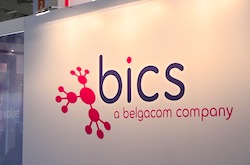Belgacom’s wholesale subsidiary BICS has teamed up with PostFinance, a division of Switzerland’s national postal service, to launch an international money transfer service.
The service allows instant money transfers between any type of organisation that processes payments – be it a bank, an online payment service or an operator’s mobile wallet.
It is based on BICS’ HomeSend Remittance Hub platform, which uses eServGlobal technology to enable end users to send amounts smaller than €400 instantly via e-banking and mobile money payments instantly in real-time, regardless of location.
“The service removes the need for the end-user to visit their local bank to conduct transactions. It can all be conducted using branded wallet services that are connected to an international network of money transfer organisations,” Frederic Salmon, VP Mobile Financial Services at BICS told Mobile Europe.
“HomeSend is built on an open ecosystem and this makes it possible to transfer transactions from any sending party to any receiving party. The medium exists for the end-user in the form of a branded mobile wallet service and the means to transfer money, we sit behind the scenes making the entire process possible.”
While the HomeSend platform has its own set of APIs, it is designed to be able to integrate with any type of money transfer organisation via the eServGlobal technology, while BICS provides the infrastructure required to facilitate the transactions.
BICS said it is hoping to build a “truly global mobile remittance ecosystem” as more banks, telcos and financial payment organisations join each year.
“It’s an example of industry evolution rather than revolution,” commented IDC analyst Alex Kwiatkowski. “It’s a good development and a sign that there will be more announcements by other providers in the next two years as they try to provide alternative payment services.”
In the developing market, BICS currently works with Airtel Africa and has been facilitating mobile money transfers throughout Africa since last year for unbanked customers via mobile numbers, after signing a deal with Xpress Money, one of the world’s biggest money transfer companies, particularly in the UAE.
The Belgium-based wholesaler’s progress is similar to that of Visa, which launched a similar mobile money transfer system in Africa and India in February and launched a P2P white label m-banking app and platform last week.
However, Kwiatkowski doesn’t feel these developments will radically change the payment industry.
“Mobile payments are growing but still massively overshadowed by traditional payment methods. In the 1960s, the first credit and charge cards didn’t stop people from using cash, and in the 80s when debit cards came out, it also didn’t stop them from using cash, and now its the same with mobile payments.”
According to Cap Gemini’s World Payments Report 2012, the number of global m-payment transactions grew from 6.5 percent to 9.8 percent, with m-payments projected to increase to 15.3 percent in 2013.
Nevertheless, Kwiatkowski believes that m-payment money transfers are still relatively low.
“While transaction volumes over mobile are increasing, at the moment, if you stripped eBay, Paypal and iTunes transactions out of it, the numbers would fall substantially,” he said.
Mobile wallets are also still very much still in the early stages of adoption.
“Consumers have shown themselves to be quite lukewarm to mobile payments,” he added.
“In the developed market, we have alternative methods of payments so there has to be something to compel consumers to use a mobile wallet. Operators are concerned about how they’re going to make money, having invested in mobile wallets, but the secret to mobile wallets is to go beyond payments, to mobile loyalty, mobile marketing, mobile ticketing and other mobile services.”



